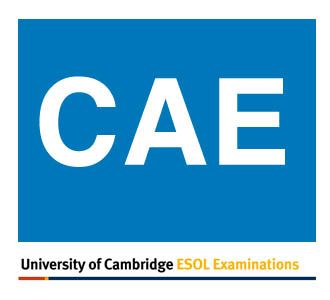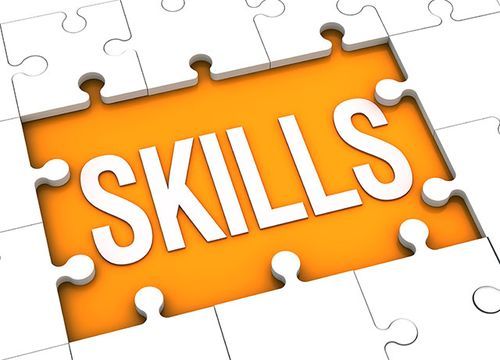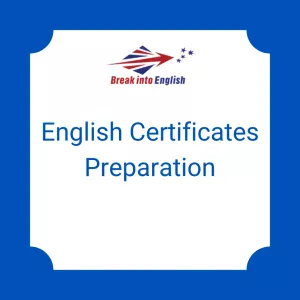How to prepare for the Cambridge Advanced
The Cambridge ESL awards are recognized all over the world – which is why it’s so important for students to gain the Cambridge Certificate in Advanced English (CAE).
Coming after the First certificate (FCE) and before the English Proficiency, completing the CAE acts as a gateway for studying or working abroad or even boosting your career prospects within your own country.
Preparing to take the exam? The Cambridge website has practice papers which are sure to help you understand what structure to expect http://www.cambridgeenglish.org/exams/advanced/preparation/ and don’t stress – discover our useful hints and tips you won’t find anywhere else which will enable you to pass with flying colors!
There are many ways to prepare for official English certificates, but certainly having a native teacher help you out will be one of the most efficient.

Section One of the Cambridge Advanced
The first part of the exam is the Reading and Use of English section. This section exams whether you understand different types of texts (fiction, magazines, newspapers) and also how effectively you use grammar and vocabulary. There are plenty of papers online which are useful to practice for this part of the exam but here are a few tips that you won’t gain from completing Reading and use of English practice papers…
- Read different real life sources to gain experience – newspapers and magazines are easy to find online as well as in newsagents.
- Part 1 is multiple choice and parts 2,3 and 4 require you to provide a written answer. You should start with these parts as they require more thinking – if you are running out of time it is easy to quickly skim the multiple choice but harder to complete full word answers.
- Read the title! Each part has a title – don’t forget to read it as it provides an idea of the text you are about to read.
Finally, don’t forget to check your spelling!
Section two of the CAE
 The second part of the exam is the writing section. In this part you will be asked to create two different pieces of writing. The first will be an essay and the second while either be a letter, e-mail, report or proposal. Here are our hints on how to prepare for the Cambridge Advanced written section:
The second part of the exam is the writing section. In this part you will be asked to create two different pieces of writing. The first will be an essay and the second while either be a letter, e-mail, report or proposal. Here are our hints on how to prepare for the Cambridge Advanced written section:
- Spend 10 minutes making a plan. Many students think that planning wastes valuable time and prefer to get stuck into the writing but the truth is that with a plan you will be able to compose a more ordered, coherent piece of writing. Make short bullet points of the aspects you want to include in your writing and refer back to them.
- Think about the tone – formal or informal? Be sure not to mix the two, as it will show that you don’t understand how to use either tone correctly!
Be sure to use linking words and cohesive devices. You will gain valuable points by using words and phrases such as; therefore, otherwise, firstly, on the other hand… remember to revise them carefully in order to fully understand when to use them correctly.
How to prepare for section three of the Cambridge Advanced
The third part is the listening part of the exam. You will be examined on your ability to understand different types of situations, for example; radio shows, everyday conversations or presentations. The best way to revise for this part of the exam is to get as much practice as possible as it is one of the most difficult skills for many people. At Break Into English we have understood this and listening exercises are an important of our method: http://englishclassviaskype.com/method/
There are many ESL listening exercises online and some other ways of practicing (whilst being entertained!) are listening to the radio or songs and also watching films or series in English – set your T.V. to original version now! Here are a few pieces of advice for the exam itself:
- Be careful with accents. When revising, search for listening activities or TV shows with a wide range of English accents to be prepared for anything!
- Underline key words in questions and be thinking of possible answers whilst the tape is playing the instructions.
Look out for distractions or tricks. To learn from mistakes make sure to read the transcript after you have completed a practice test. You will see where you went wrong in order not to repeat the same mistake in the real exam!
Preparing for Section four of the CAE
The final part of the exam is the speaking section which exams your ability to speak coherently. This is the section that most students are afraid of, as you have to be on your toes and think quickly. Remember to watch lots of example videos online to understand the structure and also remember these great tips on how to best prepare for the Cambridge Advanced speaking section:
- Say something instead of nothing. Don’t worry if you forget a word mid-sentence, continue with the sentence and the likelihood is that the examiner will understand what you mean. It’s better to finish an incomplete sentence than to stop mid thought.
- Memorize key words and advanced vocabulary – not entire answers. This will make you seem more fluent and you’re less likely to make a mistake learning a short phrase rather than a whole paragraph.
- As with the written section, you should also use lots of discourse markers to show understanding, fluency and depth to your thoughts.
- Remember to interact appropriately with your partner – study in which sections you should interact, in which you solely speak and think about vocabulary to use in the different situations.
So there you have our useful hints and tips that you need to prepare for the Cambridge Advanced exam. Follow our advice, study and most importantly stay calm on the day – you’ve got this!








